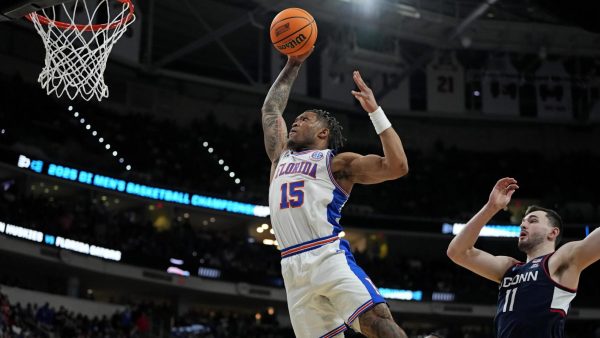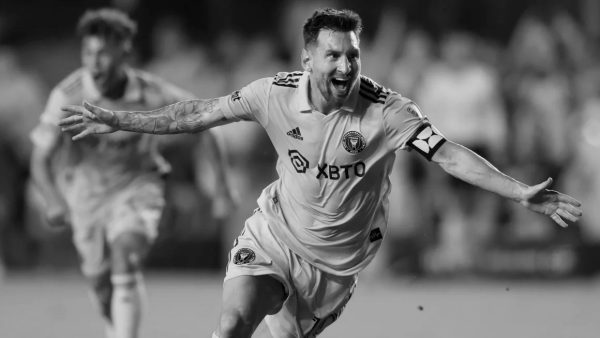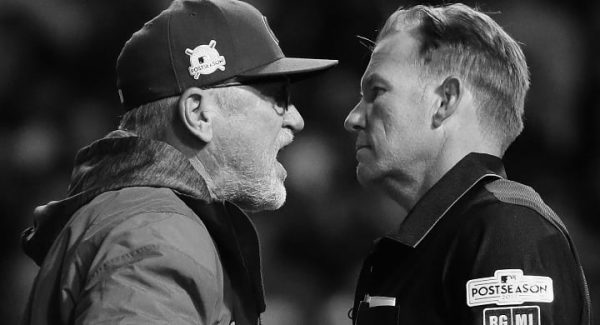A Podium Full of Controversy at the Olympics This Year
The 2022 Winter Olympic Games have been host to numerous controversies regarding participating athletes. The latest scandal at the Beijing Olympics surrounds 15 year-old Russian figure skater Kamila Valieva. Last summer, Sha’Carri Richardson was banned from competing in the 2020 Tokyo Olympics after testing positive for marijuana. Richardson, the favorite for a gold medal in the women’s 100-meter dash, received a one-month suspension, meaning she could no longer compete in the Games. Simone Biles, who was the favorite to win gold in the women’s all-around gymnastics at the 2020 Tokyo Olympics, took time off while at the Games for her mental health after getting the “twisties” mid-competition. All athletes received an extreme amount of media attention criticizing their actions, but they shouldn’t be to blame.
It was revealed that Valieva failed a drug test administered in December and had one banned drug — trimetazidine — in her system as well as two that are permitted but increase heart performance, L-carnitine and Hypoxen. Despite these test results, which were divulged after the Games had started in February, Valieva was allowed to continue competing. The young athlete was considered a “breakout star” and is credited with helping the Russian Olympic Committee take home a gold medal in the figure skating team event.
Many individual Russian figure skaters are only able to compete in one year of Olympic Games due to the high-pressure nature of the sport. After they compete, they are effectively discarded and never qualify for the team again. All the criticism and judgment that comes from being an athlete in the public eye brings to light an important question: How can individual competitors be held accountable for their actions while also placing the appropriate blame on systems responsible?
Public scrutiny needs to fixate on the Olympics, not a child. To place all of the blame on a 15-year-old would let the institution off the hook and allow similar controversies to continue happening. The way Richardson and Biles were attacked and punished by the public over the summer is appalling. Now, Valieva is being condemned by the entire world when she is still a minor. Who do we hold responsible for her mistakes? Can we even call them her mistakes if she’s only 15 and most likely doesn’t have full autonomy when it comes to her medical decisions?
President of the International Olympic Committee Thomas Bach released a statement soon after Valieva’s final individual skating event, during which she completely broke down and stumbled throughout the entire routine.
According to a Washington Post article, Bach was troubled with the way things played out for the athlete and was “unsettled” to see the way that her entourage of coaches, sports officials, trainers, and doctors treated her post-competition.
“When I afterwards saw how she was received by her closest entourage, with … what appeared to be a tremendous coldness, it was chilling to see this,” he said to the Washington Post. “Rather than giving her comfort, rather than try to help her, you could feel this chilling atmosphere, this distance, and if you were interpreting the body language, it was worse because it was some kind of dismissive gesture I saw there on TV.”
Seeing this treatment of a child did not give Bach confidence in Valieva’s support system.
“How to deal, how to address, how to treat a minor athlete at the age of 15, I can only wish for her that she has the support of her family, the support of her friends and the support of her people who help her over this extremely difficult situation,” he said.
Despite the harsh treatment Valieva faced from her entourage, Richardson clearly felt that the 15-year-old was receiving better treatment from the IOC than she did. Through a series of Twitter posts, she implied that this double standard was due to race.
“Can we get a solid answer on the difference of her situation and mines? My mother died and I can’t run and was also favored to place top 3. The only difference I see is I’m a black young lady,” she posted on Feb. 14 on Twitter.
Later that day she tweeted, “It’s all in the skin.”
The IOC’s decision to allow Valieva to compete when they didn’t offer the same opportunity to Richardson wasn’t a surprise to many. This past summer, Olympic and WNBA athlete Sue Bird announced her partnership with a CBD brand in an Instagram post which has since been deleted. The same day, Richardson was suspended for having THC in her system while Bird faced no consequences. Back in July 2021, I asked a question in an article I wrote about Richardson’s ban, which has still gone unanswered: How is it fair that a Black athlete gets banned from the Olympics for using THC, a cannabinoid, while a white athlete gets paid to use and post about CBD, which is also a cannabinoid?
It also comes as no surprise that the statement the IOC would later release during a press conference would be extremely hypocritical. Matthieu Reeb, Director General for the Court of Arbitration for Sport for the Olympics, said suspension from Olympic competition would cause the 15-year-old “irreparable harm,” but this was not considered when the Committee suspended Richardson for smoking marijuana to cope with the loss of her mother.
Olympic athletes inspire younger generations all around the world. Richardson and Valieva both have unmatched talent, but it’s clear that they lack support. When considering Valieva’s and Richardson’s cases, it’s important to remember that athletes in the public eye should not be reprimanded the way that they have been. In order to better support Olympians, the Olympics needs to refine their policies to protect young athletes and reform the institutional biases harming Black athletes.








